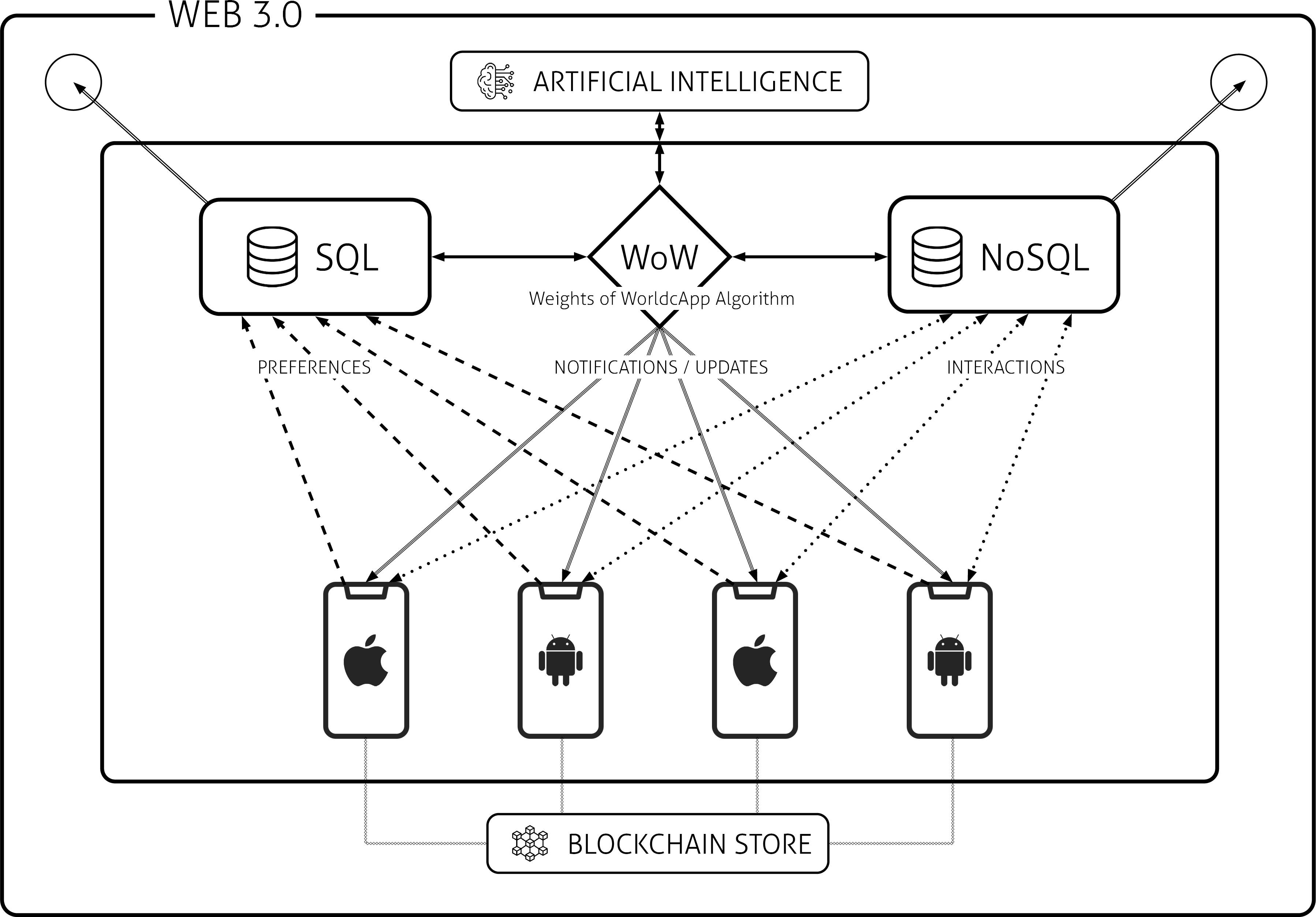Web 3.0
Towards Decentralization

Web 3.0 is a cultural inclination towards decentralization. It refers to the transfer of control or decision-making power from a centralized entity to a distributed network and it is not always a matter of a technical nature.
It lays the foundations for new opportunities - without giving up those offered by the hyper-centralized Web 2.0. - and thanks to its uprecedented level of security, efficiency and interoperability, WorldcApp can open its doors and defeat any form of mistrust.
WEB 1.0
Limited supply of contents and solutions, created by a small number of players, for a huge demand of the same, from people connected all over the world. The internet joins radio, television, cinema, photography, recorded music and industrial printing.
WEB 2.0
Huge supply of contents and solutions - created by a multitude of players of all types, sides and sizes - for a great demand of the same, from subjects connected all over the world - part of them with broadband internet - at the price of (hyper-) centralization.
WEB 3.0
A cultural inclination towards decentralization supported by technology that lays the foundations for new opportunities and has the potential to gradually evolve and guarantee what is offered by Web 2.0 - and even more - without hyper-centralization.
Decentralization has its benefits and tradeoffs. For example, (decentralized) blockchain systems typically prioritize security over performance and should be used where and when it makes sense, not in any situation regardless the real value added.
In the case of a b2b software solution as WorldcApp, decentralization could be related to the technologies and architecture behind it and/or to the processes and organization it creates.
In particular, we want to apply decentralization to provide unfiltered and unconditional access to communities built for business. We would like to get rid of the first source of web 2.0 hyper-centralization: the social algorithms that govern relationships between B2C companies and their community members. Furthermore, with the upcoming end of user tracking practices, we work to lead our B2C clients to a cultural shift: from business2consumer (Web 2.0) to business2community (Web 3.0) culture.
To put this vision into action, we have designed and developed what we like to define as The CoMarketing Platform. A software solution to:
1. Build your own community;
2. Share it with your partners;
3. Monetize the joint venture.
How about technology and decentralization in WorldcApp?
Well, we will use decentralization-oriented technologies to achieve specific goals and, step by step, we will strategically move towards a full-fledged web 3.0 platform. For example, B2C companies can take advantage of WorldcApp for CoMarketing. We believe their communities may be interested in CoBuying in some cases:
You pay 10 for an item, instead of 20, if there are at least 100 community members interested in purchasing it at the same price by a certain date. A blockchain store easily and efficiently gets your payment, then returns it to you (and others like you) if the buyers are less than 100, otherwise sends the total amount to produce and deliver what offered, with also the benefit of an economy of scale for the company involved.
How about the architecture behind WorldcApp?
If an organization needs to host WorldcApp on its own infrastructure, we have designed the CoMarketing Platform to make such a decentralization (available as soon as) possible. A Web 2.0 platform provides access to its community through a closed and profit-based algorithm; a Web 3.0 platform allows you to build your community through an open and merit-based algorithm.
